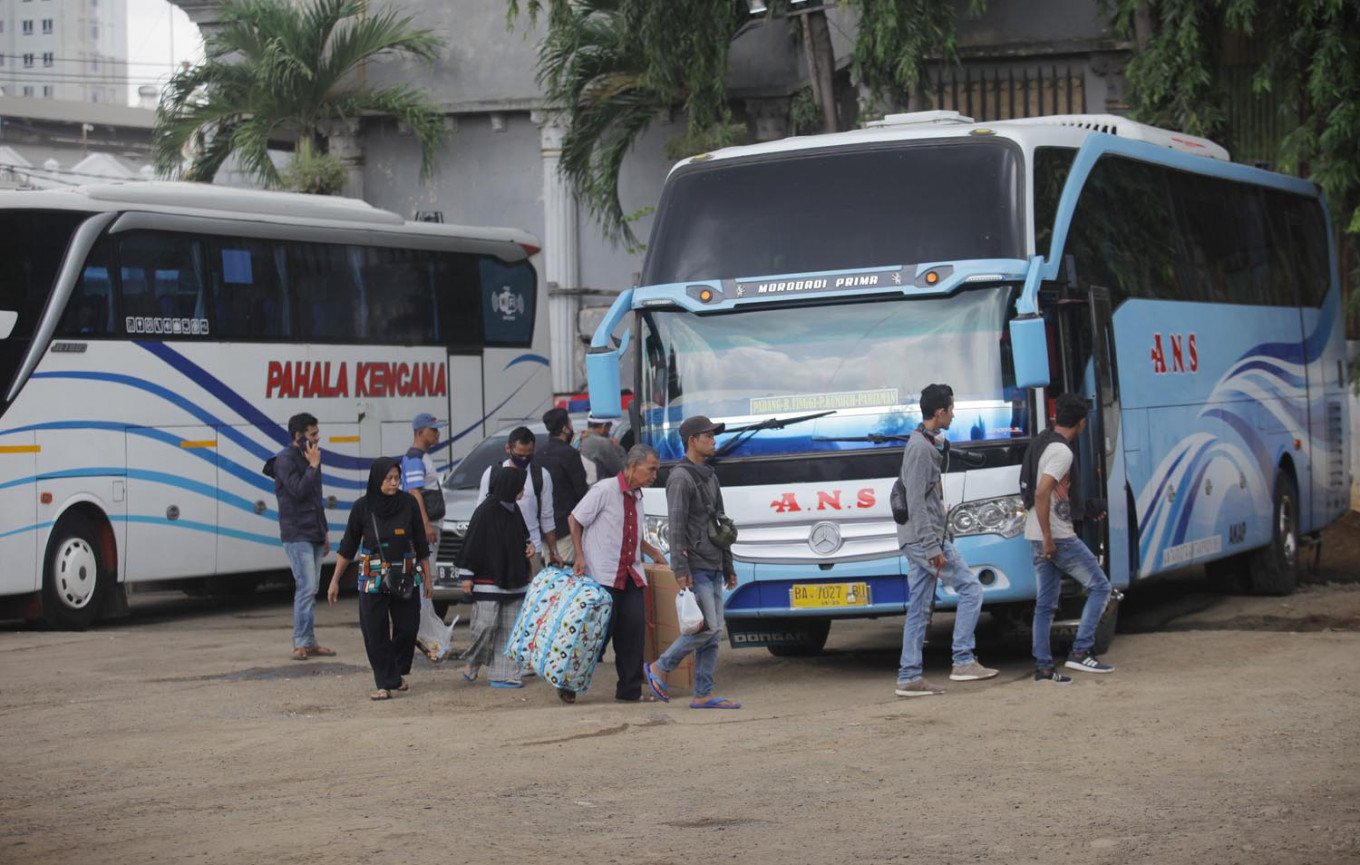Popular Reads
Top Results
Can't find what you're looking for?
View all search resultsPopular Reads
Top Results
Can't find what you're looking for?
View all search results‘It’s too late’: Lawmakers criticize timing of Jokowi’s ‘mudik’ ban
Previously, Jokowi had merely advised the public to skip the annual tradition, which involves millions of people traveling to their hometowns – often from urban centers to the countryside.
Change text size
Gift Premium Articles
to Anyone
Members of the House of Representatives have expressed dissatisfaction about President Joko “Jokowi” Widodo's newly announced ban on the Idul Fitri tradition of mudik (exodus) to curb the spread of COVID-19.
They said the President had taken too long to make his decision.
Previously, Jokowi had merely advised the public to skip the annual tradition, which involves millions of people traveling to their hometowns – often from urban centers to the countryside. The advice was considered insufficient by health experts, who called for an outright ban on this year’s mudik because of the health crisis.
“It’s too late. Many of them have left the city. And their chances of becoming virus spreaders are huge," Mardani Ali Sera of the Prosperous Justice Party (PKS) said on Tuesday.
Irwan of the Democratic Party shared the opinion, saying he had been suggesting the ban since last month.
"Many have tested positive on other islands after visiting Jakarta. [This year’s] mudik should have been prohibited a long time ago. The President was too slow by only banning it now as the virus is already widespread," he said.
Mudik homecomings have already caused issues. Recently, a 72-year-old stroke patient from Ciamis tested positive for COVID-19 after spending time with his child, who had returned to his hometown from virus-stricken Jakarta. The case was made public when West Java Governor Ridwan Kamil announced it on Facebook earlier this month.
Annually, some 20 million people from Greater Jakarta, currently the epicenter of the COVID-19 outbreak in Indonesia, travel to their hometowns across the nation to celebrate Idul Fitri.
The tradition, public health experts say, could lead to the further spread of COVID-19 on the island of Java, home to 141 million people. Many regions have healthcare systems far worse than Jakarta’s.
Both Mardani and Irwan said the ban must be followed by strict monitoring of mass transportation companies and roads.
"Without forming a team tasked with monitoring the movement, the ban will be ineffective. Just like the PSBB [large-scale social restrictions] policy,” Mardani said.
Yandri Susanto of the National Mandate Party (PAN) said the government had to come up with measures to enforce the ban quickly, suggesting that transportation companies should be prevented from selling tickets during Ramadan and Idul Fitri.
"Do not just ban people from participating in mudik. The government must be firm by making all transportation options unavailable for people to do it,” said Yandri.
Melki Laka Lena, the deputy chairman of House Commission IX overseeing health, said the government needed to ensure that people in economic hardship as a result of the pandemic received social assistance.
“Many are still in need of social assistance. The government should ensure it and distribute it equally to all," the Golkar Party politician said.
A recent survey by the Transportation Ministry showed that 68 percent of people had decided not to participate in mudik, while 24 percent planned to leave regardless and 7 percent had already left for their hometowns, Jokowi said on Tuesday.










